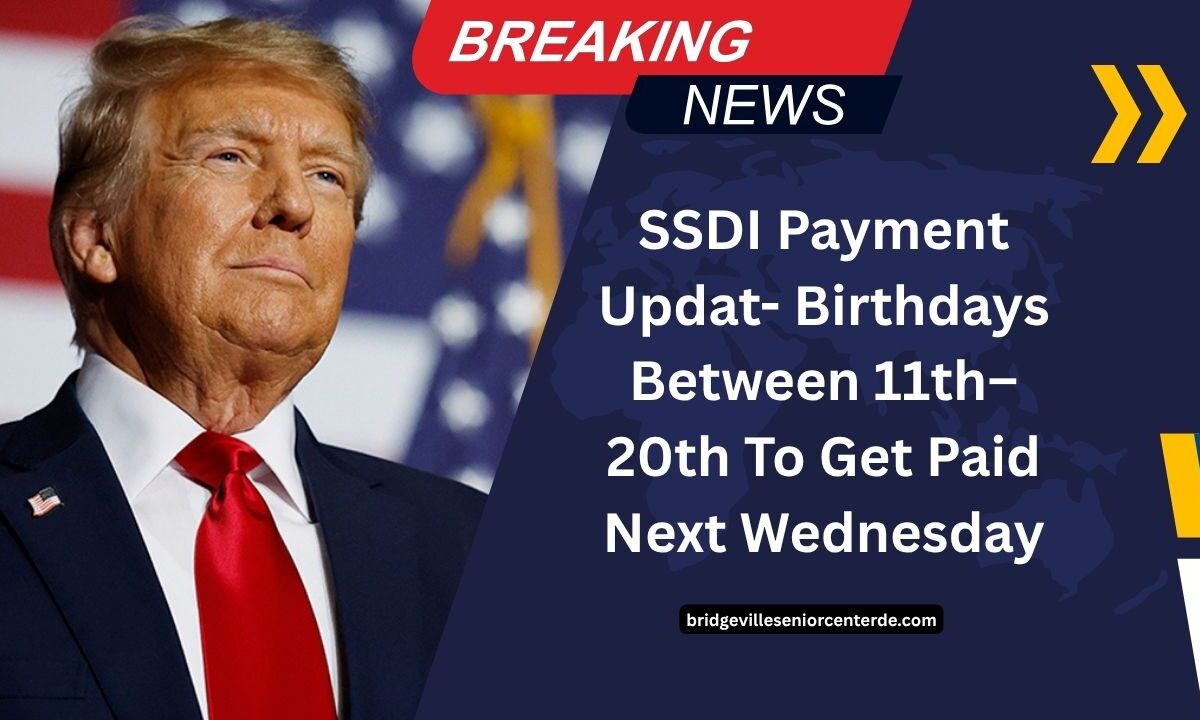If you’re a Social Security Disability Insurance (SSDI) recipient, understanding the exact deposit schedule each month can help you manage your finances.
For July 2025, the Social Security Administration (SSA) is sending out deposits based on your birthdate.
If you were born between the 11th and 20th of the month, your SSDI payment is scheduled for Wednesday, July 16th.
This follows the standard staggered payment system:
| Birthday Range | SSDI Payment Date (July 2025) |
|---|---|
| 1st–10th | July 9, 2025 |
| 11th–20th | July 16, 2025 |
| 21st–31st | July 23, 2025 |
| Prior to May 1997 or on SSI | July 3, 2025 |
This three-tier system has been in place since 1997 to spread out payments across the month for better processing.
How Much Will You Receive in July 2025?
The average SSDI payment in 2025 is around $1,580 per month. However, this figure varies depending on your work history and earnings prior to becoming disabled.
- Average SSDI Payment: $1,580/month
- Maximum SSDI Benefit: $4,018/month
- Average Retirement Benefit (for comparison): $2,002/month
- Maximum Retirement Benefit: $5,108/month
If you receive Supplemental Security Income (SSI) along with SSDI, your payment may differ slightly.
Major Change Coming: Paper Checks to End by September 30, 2025
A March 2025 presidential directive has mandated the complete elimination of paper checks for federal benefit payments, including:
- SSDI
- SSI
- Social Security Retirement
- Tax refunds
- Federal vendor payments
By September 30, 2025, all payments must be made electronically. The move is based on three main reasons:
- Security: Paper checks are 16x more likely to be lost or stolen.
- Cost: The paper check system costs the U.S. government nearly $750 million annually.
- Efficiency: Electronic payments are faster and more reliable.
Nearly 485,000 Americans Still Using Paper Checks
As of June 2025, 485,000 beneficiaries—mostly elderly or unbanked—still depend on paper checks.
If they fail to switch to an electronic payment method by the deadline, they may face delayed or withheld benefits.
Here’s What You Can Do:
- Direct Deposit to a bank account is the fastest and safest method.
- Use the Direct Express® Debit Mastercard®, a prepaid card designed for those without traditional banking access.
- Sign up online via SSA.gov, call SSA, mail a form, or visit your local Social Security office.
- For Direct Express and other bankless options, visit GoDirect.gov.
Are There Any Exemptions?
Yes, but they are limited. You may qualify for an exemption if:
- You live in an unbanked or remote area
- You have a documented emergency or medical condition
To apply, you’ll need to formally request an exception through both the Department of the Treasury and SSA, along with supporting documentation.
If your birthday falls between the 11th and 20th, your SSDI deposit is scheduled to arrive on Wednesday, July 16th.
Take a moment to verify your banking details to ensure smooth processing. Also, with the phase-out of paper checks by September 30, now is the time to act.
Make the switch to direct deposit or a Direct Express card and avoid any disruptions to your essential benefits.
Staying informed and prepared will ensure that your SSDI payments are secure, on time, and hassle-free moving forward.
FAQs
What happens if I don’t switch from paper checks by September 30, 2025?
If you don’t switch to electronic payments, your benefits may be delayed, withheld, or even stopped until you update your method.
How do I sign up for the Direct Express card?
Visit GoDirect.gov or call the number listed on the SSA website. You can also request enrollment at your local SSA office.
Can I still receive paper checks if I live in a rural area without banking access?
Yes, but you must apply for an exemption and provide proof of your situation. This isn’t automatic and must be done before the deadline.

